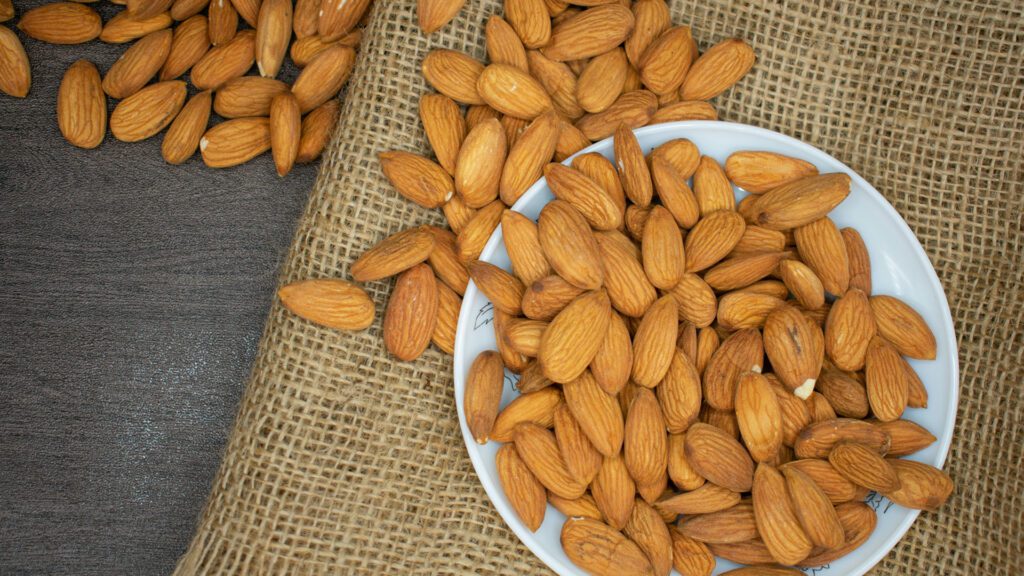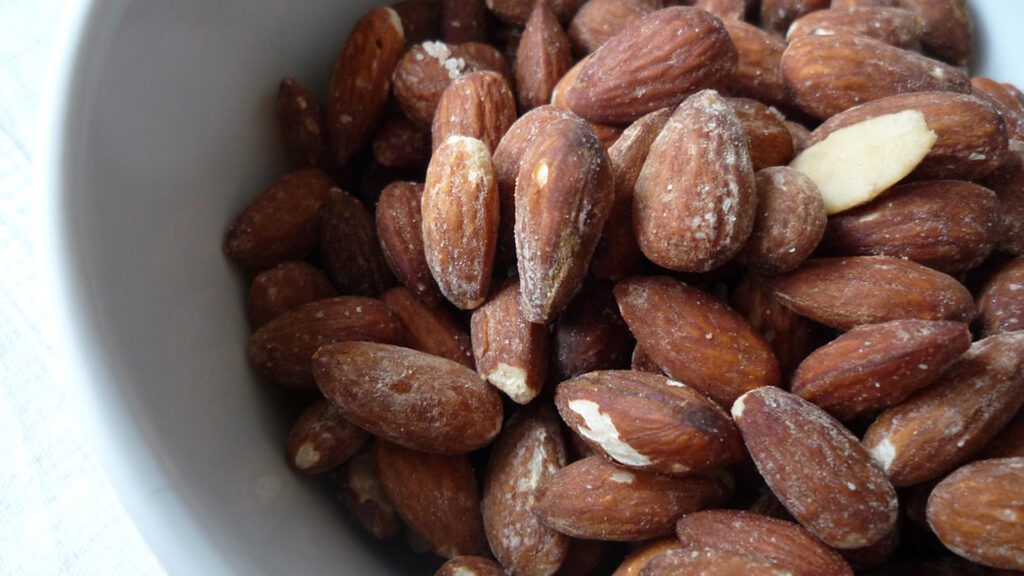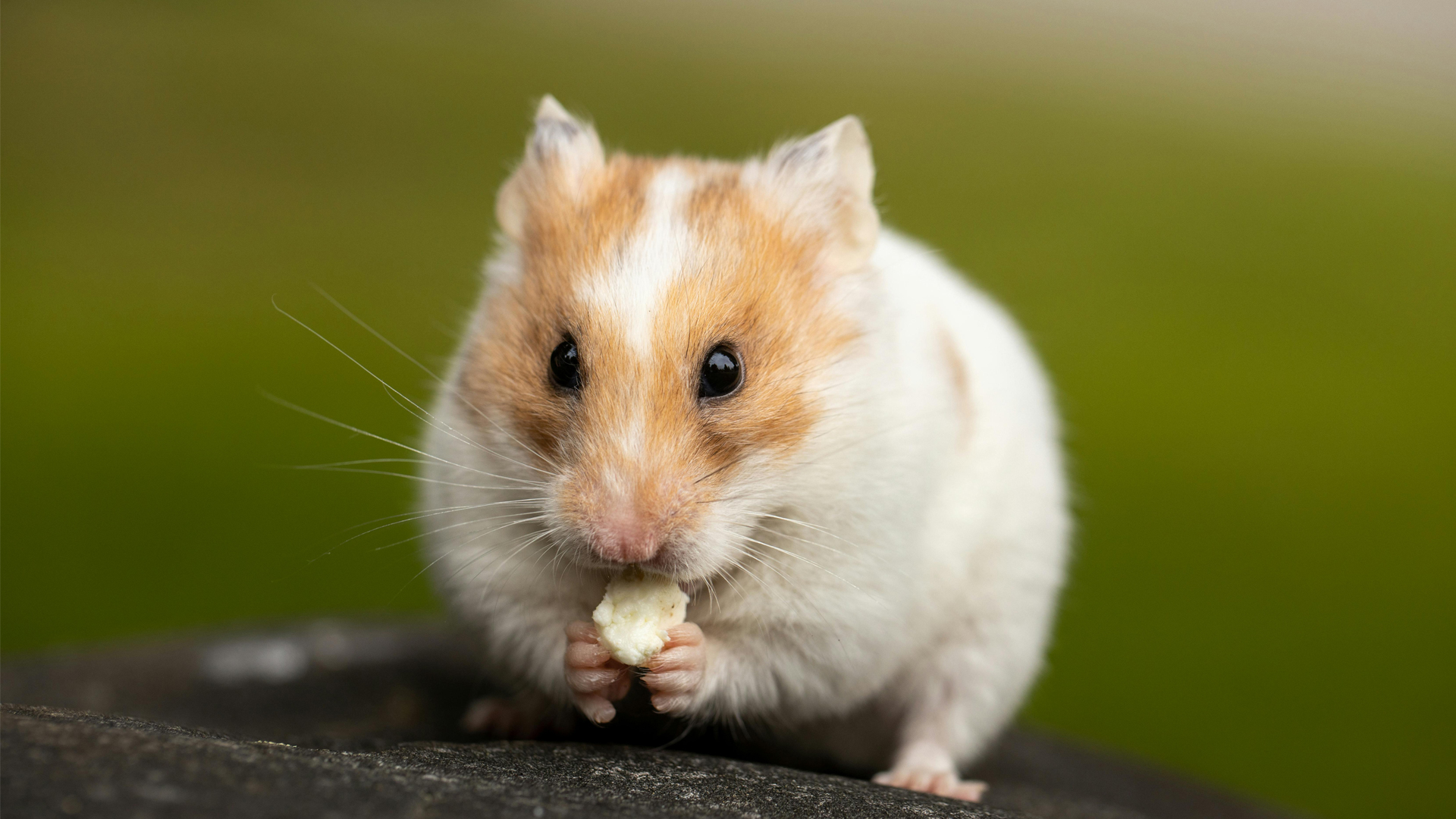Have you ever seen your furry little hamster eyeing your snack and wondered, if it can have almonds just like you do?” Well, lets find out!
Can Hamsters Eat Almonds?
Yes, hamsters can eat almonds as an occasional treat, but you must ensure you give your hamster the right kind.
If fed properly alongside other grain and vegetables, almonds can become part of a healthier overall diet.
Benefits Of Feeding Almonds To Your Hamster

Almonds can be a beneficial addition to the diet of your hamster, when introduced in moderation. Here are several advantages of including almonds in your hamster’s meals:
Nutritional Value: Almonds are packed with essential nutrients, including vitamin E, calcium, magnesium, and healthy fats. These nutrients can contribute to your hamster’s overall health and well-being.
Healthy Fats: The healthy fats found in almonds can provide a good source of energy for active hamsters. These fats are beneficial for maintaining a healthy coat and skin.
Protein Source: Almonds contain protein, which is vital for muscle development and overall growth in rodents. This is particularly important for young or growing hamsters.
Dental Health: Almonds have great texture. Chewing on almonds can help wear down your hamster’s continuously growing teeth. Providing hard foods like almonds can prevent overgrowth.
Variety in Diet: Introducing almonds can add variety to your pet’s diet, making mealtimes more interesting. A varied diet can prevent boredom and encourage foraging behaviors.
Antioxidant Properties: Almonds are rich in antioxidants, such as vitamin E, which can help combat oxidative stress and support your hamster’s immune system.
Digestive Benefits: The fiber in almonds can aid in digestion. This helps in maintaining a healthy digestive system for your furry friend.
The Appropriate Amount of Almonds That Should be Given to Hamsters
Hamsters should have almonds in small amounts to avoid health issues. Half an almond per day is sufficient for their nutritional needs.
Hamsters receive the nutrition they need from their regular feed. While seeds and nuts can be a diet staple, almonds should not replace their regular food. For older hamsters, one almond per week is sufficient.
How to Feed Your Hamster Almonds
Feeding your hamster a balanced diet is essential for its health and well-being. Almonds can be a tasty treat for hamsters, but there are a few guidelines to follow to ensure your pet stays healthy.
Choose the Right Type of Almonds
When considering almonds for your hamster, always opt for raw, unsalted almonds or buy organic almonds.
Avoid flavored or roasted almonds, as they often contain additives and preservatives that can be harmful to your pet.
Moderation is Key
Almonds are high in fat, so they should only be given as an occasional treat. A good rule of thumb is to offer a tiny piece once or twice a week.
Prepare the Almond
Before giving an almond to your hamster, make sure to break the shell, and divide it into manageable pieces.
Soak the almonds in hot water for 15 minutes to soften the skins. Then pull the skin off after they cool. This removes the cyanide found in almond skin.
Monitor Your Hamster
After introducing almonds into your hamsters diet, watch for any signs of digestive upset or allergic reactions.
Symptoms may include diarrhea, lethargy, or unusual behavior. If you notice any concerning signs, stop feeding almonds and consult your veterinarian.
Offer Variety
While almonds can be a tasty treat, hamsters thrive on a varied diet. Make sure your pet’s primary diet consists of high-quality hamster pellets, fresh fruits, and vegetables.
Treats like almonds should only complement this balanced diet.
Potential Risks Of Over feeding Almonds To Your Hamsters
Overfeeding can lead to several potential risks that every hamster owner should be aware of. Here are some of the key concerns:
Obesity: They are too high in fat for hamsters, and may contribute to obesity. Obesity in hamsters can lead to a variety of health issues, including diabetes and heart disease.
Digestive Issues: Hamsters have sensitive digestive systems. Consuming too many almonds can lead to gastrointestinal distress. This includes diarrhea, bloating, and discomfort.
Nutritional Imbalance: Hamsters require a variety of nutrients. An overabundance of almonds can displace other essential foods that provide the vitamins and minerals they need.
Choking Hazard: Almonds, especially whole ones, can pose a choking risk for hamsters. Always ensure that treats are appropriately sized or chopped into smaller pieces.
Liver and Kidney Stress: The high fat content in almonds can put extra stress on a hamster’s liver and kidneys, especially if they are fed in large quantities over time.
Allergic Reactions: Some hamsters may be allergic to nuts, including almonds. Symptoms can range from mild to severe and may include itching, swelling, or gastrointestinal upset.
Behavioral Changes: Over time, if hamsters become accustomed to receiving too many treats, they may develop picky eating habits or exhibit changes in behavior.
Almonds You should Avoid Feeding Your Hamster

Unfortunately, almonds do have a negative side for hamsters. Let’s look at what kind of almonds you need to avoid and why.
Bitter Almonds
When considering almonds for your pet’s diet, it’s crucial to be aware that bitter almonds might be a deadly choice.
Unlike sweet almonds, bitter almonds contain small amounts of cyanide. It is a harmful chemical that can pose serious health risks.
An almond that is a little wider looking might be a bitter almond. Always opt for organic almonds as they are safer and free of pesticide residues.
Salted Almonds
Some almonds and peanuts come salted or with added flavoring and additives. Too much salt in unhealthy for hamsters and it can cause upset stomach, diarrhea, and dehydration.
Summary
Here are some points to summarize everything we learned in this article.
Almonds are safe for hamsters to eat if fed in small amounts.
Almonds are quite nutritious and are loaded with vitamin E, manganese, and riboflavin.
You should not feed your hamsters with almonds every day.
Avoid feeding salted and bitter almonds to your hamster.


